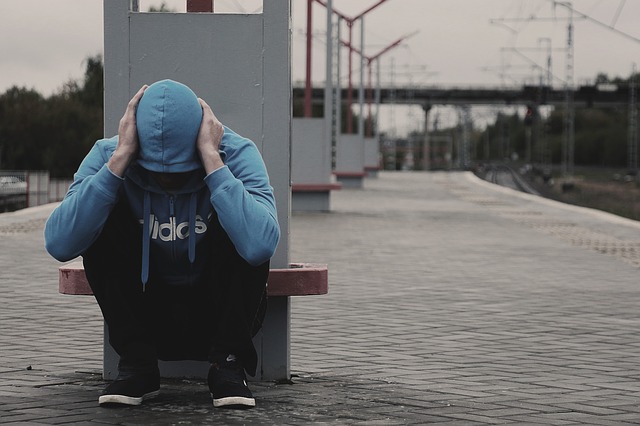- Home
- Get Help for Addiction
- Addiction and Bullying
Addiction and Bullying
Around 17% of children aged 10 – 15 are bullied in a way that makes them uncomfortable.
In addition to the above, a UNISON survey found that six in ten workers have been bullied in the last six months.
These statistics are terrible, but what’s even more concerning is that there is a big link between bullying and addiction.
What Is Bullying?

Bullying is when someone continues behaviour that you are uncomfortable with or dislike.
There are many types of bullying:
- Physical: Where someone may hide your things, hit you, push you, hurt you or damage your possessions.
- Verbal: This is where someone may call you names, and say hurtful things to you including homophobic, sexist or racist comments.
- Social: This happens when someone spreads rumours, tells your friends or family things you did not wish for them to know and goes out of their way to destroy your reputation.
- Cyber: This is where online harassment happens. It can include receiving unsolicited pictures, and messages, posting unflattering pictures, sending malicious messages or even imitating others.
- Sexual: This usually involves calling someone sexually explicit names, making crude comments about the way someone looks, their sexual activity or sexual development, or even direct sexual assault.
This is just a brief overview and there are many other kinds, but it is important to recognize the signs of bullying in whatever form.
Is There A Relationship Between Addiction And Bullying?

Someone can develop a substance abuse disorder for a variety of reasons – pressure from friends or family members, a mental illness, their circumstances changing or even a traumatic situation.
As such, it should come as no surprise that bullying would be a reason as well.
Addiction is a permanent solution to a temporary problem -but unfortunately, many people fall under its grip.
When someone is bullied, they go through undeniable stress and harm.
It can cause long-term psychological damage and it is a well-known fact that when children are bullied, they go on to have problems in later life.
Of course, it’s not just the victims who can undergo long-term problems.
Oftentimes, bullies can be victims themselves, whether they’re bullied directly or have problems in the home.
Either way, bullying can have long-term impacts, so it’s not a surprise that some victims may seek out substances to help them deal with their current situation.
In addition to the above, through research it has been found that there is a definitive link between addiction and bullying.
Victims of bullying are more likely to abuse substances than those who are not victims of it.
Long-Term Impact Of Bullying For Victims

Those who are victims of bullying can suffer long-term psychological damage from the bullying.
However, if the victims have also developed a substance abuse disorder, there are many other effects that this may cause.
If someone develops a substance abuse disorder, there are often many long-term side effects.
Many of them can create withdrawal symptoms, mental illnesses, disabilities, psychological problems and physical problems.
When paired with bullying, the results can be unpleasant.
As such, it’s important to get help as soon as possible.
It is never the victim’s fault that they are being bullied, and if someone you know is being bullied and has developed an addiction as a result, please seek help today.
Bullying And Mental Health

When paired with addiction, bullying can lead to some worrying mental health problems.
The National Library of Medicine found that those involved in bullying are 3 – 4 times more likely to attempt suicide than those who aren’t.
In terms of mental health, bullying and addiction can both aggravate mental health issues or develop them entirely.
These can include:
- Depression
- Anxiety
- BPD
- PTSD
- Eating disorders
- Paranoia
As such, it’s important that you seek help if you or someone you know is being bullied or you believe you might be developing an addiction.
Addiction Implications for Bullies

Surprisingly, bullies are just as likely as the victims to develop a substance abuse problem.
This means that bullies are just as likely to develop all the side effects that come with a substance abuse problem.
In addition to the above, if the bully is already facing issues with the school or workplace they are at, the addiction can cause more consequences alongside the bullying, including:
- Loss of job
- Social exclusion
- Anger issues
- Ruining personal relationships
Depending on what the addiction is and the severity of it, it can also lead to many other issues as well, such as theft, destruction of property and criminal activity.
Signs of Bullying and Addiction

Bullying and addiction are related to one another, as such it should come as no surprise that the signs of bullying and addiction tend to overlap with one another.
Signs of bullying and addiction tend to be:
- Becoming withdrawn or isolated
- Not enjoying activities as much as they used to
- More sick days than usual, or simply being absent
- Not doing well in school or work
- Loss of appetite
- An inability to sleep
Of course, there are many different signs between bullying and addiction, but they do share a lot of similarities.
Workplace Bullying

Bullying in the workplace can be quite common, but often it’s a lot harder to spot the signs – whether you’re a workplace friend, colleague or a concerned boss.
A review by the National Library of Medicine found that those who are unemployed are more likely to have a substance abuse disorder.
Substance abuse also increases the chances of someone becoming unemployed, as people who struggle with an addiction may be unable to find and hold a job.
Bullying is likely to cause problems such as people avoiding work, not being able to sleep or drops in performance.
As mentioned above there are many other problems which this can create.
As such, it’s vital that employers aim to create a safe, inclusive environment and tackle bullying in the first instance, or report it so it doesn’t lead to other problems.
It’s also important that if you are being bullied in the workplace, you take the appropriate steps to report it.
Cyberbullying And Addiction

Cyberbullying is still relatively new, having only come about in the last twenty years since the internet has been around.
As such, it’s important to have an understanding of what exactly cyberbullying is and what it entails:
- Posting inappropriate/unflattering pictures
- Sending hurtful messages
- Creating fake accounts to target someone
- Doxing/sharing your personal details and information
- Creating rumours that are embarrassing, hurtful or threatening
Even though it is a relatively new form of bullying, it is just as hurtful as the other types of bullying, and it can lead to addiction just as the other types can.
The only difference with cyberbullying is that it can happen to anyone.
You may not be employed, or in school, but it can still happen.
Due to the above, cyberbullying can also lead to a substance abuse disorder.
However, the signs and symptoms of cyberbullying and addiction tend to be a lot harder to recognize.
Extreme isolation and spending more time online tend to be the two biggest symptoms of cyberbullying and addiction.
As such, it’s important to look out for someone becoming more withdrawn and isolated compared to usual.
Get Help For Bullying and Addiction

Bullying and addiction can go hand in hand.
It’s important to seek help if you are struggling with either.
If you are being bullied, either at school or work, inform someone that you trust of the situation.
If you are struggling with addiction and bullying, you can seek help here.
You don’t have to struggle alone.


